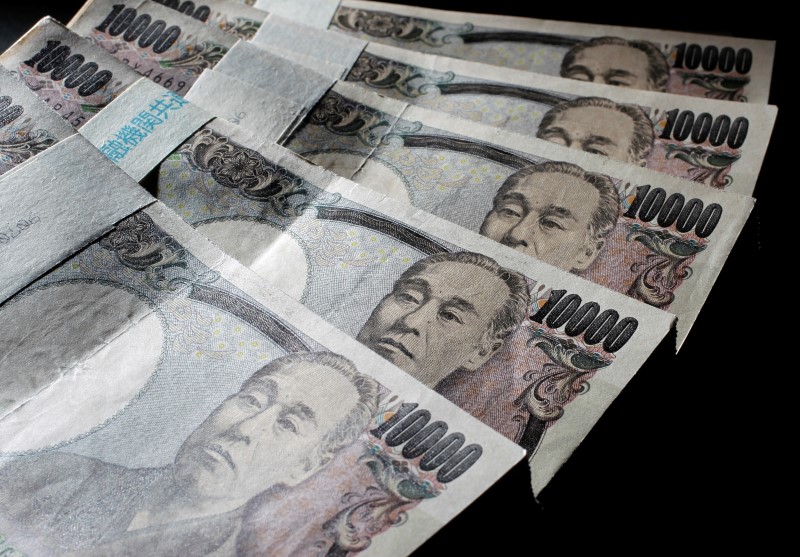Investing.com - The yen and pound held gains in Asia on Friday after early data from Japan and Australia offered some support in a busy regional data day and as investors increasingly expect any exit of Britain from the European Union will be a drawn-out process that may even falter.
USD/JPY changed hands at 103.13, down 0.09% after the data, while GBP/USD traded at 1.3342, up 0.24%. AUD/USD traded at 0.7452, up 0.01%.
Australia's the AIG manufacturing index came in at 51.8, above 51.0 for the previous month.
In Japan national core CPI for May fell 0.4% year-on-year as expected. As well household spending for May dropped 1.1% year-on-year, less than the 1.4% declinbe seen, but the month-on-month figure fell 1.5%, more than the 0.2% decloine expected.
The unemployment rate in Japan for May held steady at 3.2%.
Shortly after those figures, the Tankan surveys are due with the Tankan all big industry CAPEX for the second quarter seen up 5.9%.
In China comes the June semi-official CLFP manufacturing PMI from China with a level of 50.0 seen, a slight down tick from 50.1 and just on the edge of expansion. The non-manufacturing PMI is also due with a level of 53.1 the previous month.
Then comes the Caixin manufacturing PMI for June with a 49.1 level expected, down from 49.2 the previous month.
The U.S. Dollar Index, which measures the strength of the greenback versus a basket of six other major currencies, was last quoted at 95.95.
Overnight, GBP/USD pared some losses after re-testing 31-year lows on Thursday, as Bank of England governor Mark Carney sent strong hints that the Bank of England could ease monetary policy later this summer to help prevent irreparable harm to the British economy in the wake of last week's Brexit decision.
Delivering his second public address since last week's shocking Brexit outcome, Carney emphasized that the BOE could lower interest rates in the coming months to safeguard the economy from further shocks emanating from last week's Brexit vote. The BOE has left interest rates steady since 2012 and held its benchmark interest rate at a record-low of 0.5% in every meeting dating back to 2009. While the BOE meets next in July, Carney hinted that the central bank could wait until August to loosen policy.
